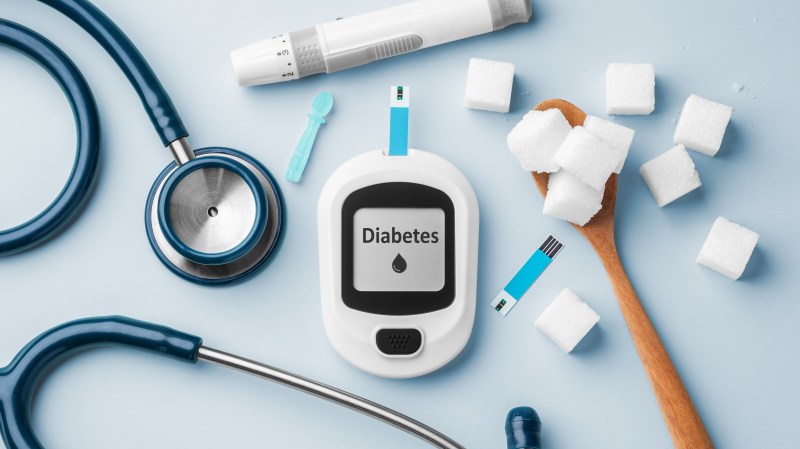Let’s talk about peripheral neuropathy diabetes–a common complication that can cause pain, tingling, numbness, and weakness.
These symptoms typically start in your hands and feet. The thing about diabetic peripheral neuropathy is that the symptoms often develop gradually.
Sometimes, they progress so slowly that you might not even notice them at first.
This makes it even more critical to understand what causes this condition and how to better manage it.
Peripheral neuropathy diabetes develops when consistently high blood sugar levels damage your nerves.
Longer nerves that reach your extremities are the most susceptible to damage. Imagine a garden hose that gets kinked.
The water flow reduces, and the farthest end receives less water. Similarly, with damaged nerves, the signals between your brain and the rest of your body get disrupted.
This leads to various sensations that are hallmarks of this condition. It’s as though your nerves are trying to send a message, but the lines are fuzzy, resulting in mixed signals and discomfort.
Understanding Peripheral Neuropathy Diabetes
One of the first steps in managing any health condition is understanding what’s happening within your body, especially something like peripheral neuropathy or diabetes.
Having a clear picture of the causes and symptoms can help you take charge of your health journey.
Plus, it allows you to have more informed conversations with your doctor.

Causes of Peripheral Neuropathy Diabetes
As mentioned earlier, consistently high blood sugar is a major culprit behind nerve damage.
However, it’s not always as straightforward as that. This high blood sugar can actually set off a cascade of events that disrupt your nerves’ ability to function correctly.
High blood sugar can damage the small blood vessels that supply your nerves with oxygen and nutrients.
This damage is similar to how a traffic jam restricts essential supplies from reaching their destination. Except in this case, the “supplies” are vital for your nerves to work correctly.
High blood sugar also interferes with how your nerves use insulin. Insulin is essential for regulating blood sugar levels.
Without enough insulin, your nerves can’t use glucose for energy as efficiently. This deficiency contributes to nerve damage. Another critical aspect to consider is inflammation.
Inflammation can be triggered by chronically elevated blood sugar levels. Inflammation can further damage nerves and surrounding tissues.
Did you know that peripheral neuropathy affects employee productivity? High blood sugars over time can lead to many complications like this.
Make sure you are speaking with your doctor about ways to get your blood sugars under control.
Symptoms of Peripheral Neuropathy Diabetes
The symptoms of diabetic peripheral neuropathy can vary from person to person. However, common ones include:
- Numbness or reduced sensation in your feet and hands.
- Tingling or burning sensations, almost like pins and needles.
- Sharp, jabbing pain that comes and goes.
- Increased sensitivity to touch–even light touches might feel painful.
- Muscle weakness, particularly in your feet.
If you’re experiencing any of these symptoms, talking to your doctor is crucial, particularly if you’ve been diagnosed with diabetes or pre-diabetes.
If you have been diagnosed with diabetes, ask your doctor about your risk for developing neuropathy.
Managing Peripheral Neuropathy Diabetes
Managing this condition effectively often involves a multifaceted approach. This involves addressing your blood sugar, incorporating specific nutrients, and even making some lifestyle changes.
The aim is to slow down the progression of nerve damage and manage your symptoms so that you can live a fulfilling life.
You may even need to visit a diabetes clinic for assistance.

The Role of Nutrition
Just as certain foods can elevate your blood sugar levels, others can help in managing them and even provide your body with the tools to combat nerve damage.
Think of it like providing your body’s natural repair crew with the right building blocks to help protect your nervous system.
Research has linked several nutrients with improving nerve health. For instance, B vitamins, especially B1 (thiamine), B6 (pyridoxine), and B12 (cobalamin), are essential for nerve function.
Many older people are deficient in B vitamins, so it is important to be cognizant of your intake.
Vitamin B1 (Thiamine):
- Function: Helps convert glucose into energy for your nerves.
- Source: Nutritional yeast, sunflower seeds.
Vitamin B6 (Pyridoxine):
- Function: Involved in neurotransmitter production.
- Source: Poultry, fish, bananas.
Vitamin B12 (Cobalamin):
- Function: Needed for myelin formation (the protective sheath around your nerves).
- Source: Meat, poultry, fish, dairy.
Alpha-lipoic acid:
- Function: A powerful antioxidant that may protect nerves from damage.
- Source: Spinach, broccoli, tomatoes.
Acetyl-L-carnitine:
- Function: Helps produce energy and may improve nerve function.
- Source: Red meat, poultry, fish.
Incorporating them as part of a proper diet might support nerve health. Keep in mind that autonomic neuropathy is also something to consider, as it affects the nerves that regulate involuntary bodily functions.
Food is just one piece of the puzzle when addressing a condition like peripheral neuropathy and diabetes.
Remember to consult your doctor or a registered dietitian before making any major changes to your diet.
It is also important to consult with them if you have specific concerns about your nerve health.
Keto Garlic Bread for Neuropathy Relief
A low-carb diet can be beneficial in managing peripheral neuropathy caused by diabetes, as it helps regulate blood sugar levels and reduce inflammation.
Incorporating keto garlic bread into your meals is an excellent way to enjoy flavorful, low-carb food while supporting nerve health.
The garlic in this dish provides anti-inflammatory properties, which can alleviate symptoms of neuropathy, making it a delicious and beneficial choice for those managing diabetes-related complications.
Conclusion
Peripheral neuropathy diabetes can seem overwhelming, however, it is essential to remember that even small, consistent changes can make a significant difference in managing this condition and living a healthier life.
Symptoms of peripheral neuropathy can be as simple as numbness and tingling, but it can develop into much more.
Be your health advocate–stay informed, prioritize a proper lifestyle, and maintain open communication with your doctor or a qualified healthcare professional for personalized guidance on your journey.








